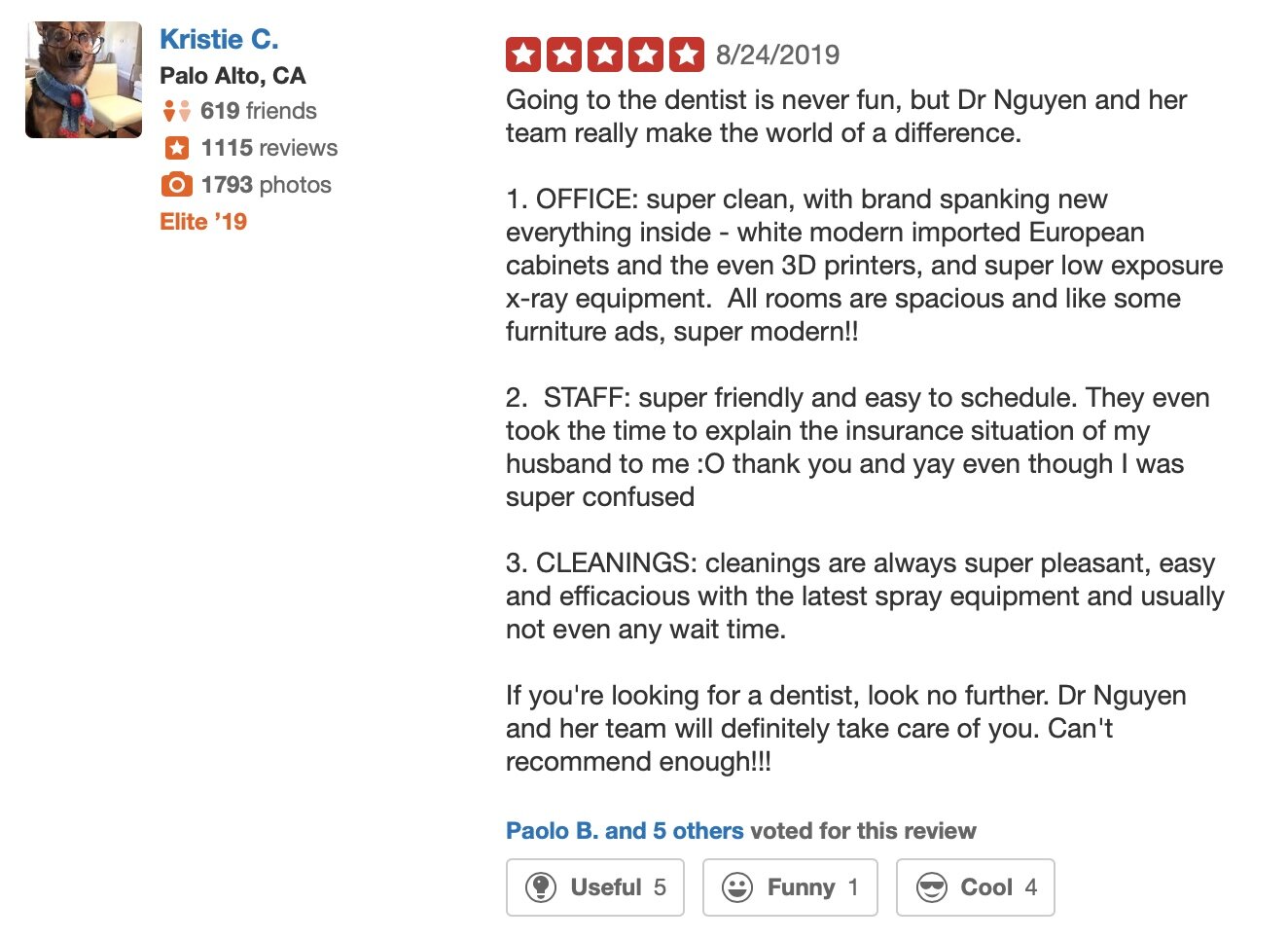Most dental offices spend close to 30% of production annually on paying the dental team that makes the office run. This is usually the largest expense in any office.
When designing a new dental office there are many ways to maximize efficiency and reduce labor costs. In addition you can actually clean up the office, improve the patent experience, and enhance the brand of your dental office.
Utilize each step below to maximize your ROI and save approximately $59,401 labor/year. In addition the office will be cleaner more organized and patients will take notice! In less than one year smilecraft has already received 14, 5 star Yelp reviews many of which mention “organization”, “clean”, and “technology”.










Step 1 - Centralize Sterilization
At smilecraft Kappler Design(www.kapplerdesign.com) centrally located sterilization in the design. Each day the average assistant enters sterilization close to 100 times(Dental Economics). If they have to walk more than 40 feet to reach the clean or dirty side it’s a waste of labor.
Real life math - If sterilization was 70 feet away from some ops, :30 average additional time per trip, 100 trips per day, $20/hour (.33/min). $16.50 in labor extra/day/assistant, $495/month/assistant, $5,940/ year/ assistant, two assistants $11,880/ year labor savings.
Sterilization is located less than 40’ from any operatory
Step 2 - Use Tubs and Cassettes!
Operatory 3 - The days procedures ready to go in the upper procedure storage in operatory 3 at smilecraft
Storage and prep area - Tubs and cassettes are ready for deployment to operatories at smilecraft
Utilizing tubs and cassettes saves you big time! 40 hours or more(Dental Economics) per month can be saved by not individually bagging, ultrasonicing, drying, and hand washing instruments. 1 hour of labor for every 9 procedure setups(Scican Instrument reprocessing guide) is saved by utilizing cassettes and an instrument washer.
Real life math - 40 hours saved/month, $20/hour, $9,600/year savings
Step 3 - Single entry ops
Operatory 1 with private single entry and a 6’ wide cabinet organized and ready to keep the procedures moving along.
Often times dentists say “I need dual entry because my assistant needs to be able to get out.” The average time an assistant is gone from an operatory is just about 2 minutes/trip. Dental assistants should be in the operatory assisting not out getting things they couldn’t fit in the operatory or forgot. Single entry doubles the available storage available ergonomically at the 12 o clock position. When combined with the superior organization system of tub and cassettes and the Kappler drawer organization restorative/surgery operatories can be turned over 2 mins/op faster.
Real life math (non-single entry leaving for missing materials) - 2 mins/trip, 4 trips/day, $2.64/day, $80/month, $950/year
(Op turnover with tub and cassettes & Single entry) 3 ops, 6 procedures/day, 36 op turnover mins saved/day, $11.88 saved/day, $356.40/month, $4,276.80 saved/ year.
Step 4 - Leave some work space
Open working space around patient Treatment Center
Leaving at least 3’ from any side obstructions and 2’ from the head wall cabinet helps get into position faster without having to move patients, re-position assistants, or swivel chairs. Moving into 12 o clock is possible and working faster because of this is assured.
Real life math - :30 seconds/patient saved by Dr. equates to $14,940 in Dr. time save by quick position/ year.
Step 5 - Op Organization and consistency
Having organized operatories and centralized supplies not only positions your practice differently to patients but it helps make you money. Each operatory should be the same to create consistency and eliminate trips for forgotten items.
Notice below how drawer organizers are utilized so the Dr. has a drawer on the lower left, the lower right has a drawer for assistant consumables, and also a drawer for hygiene. Every operatory is the same!
Real life math - 1:00 saved/procedure due to efficiency in procedure organization. 6 procedures a day save $18,705/year in Dr. and assistant labor.







